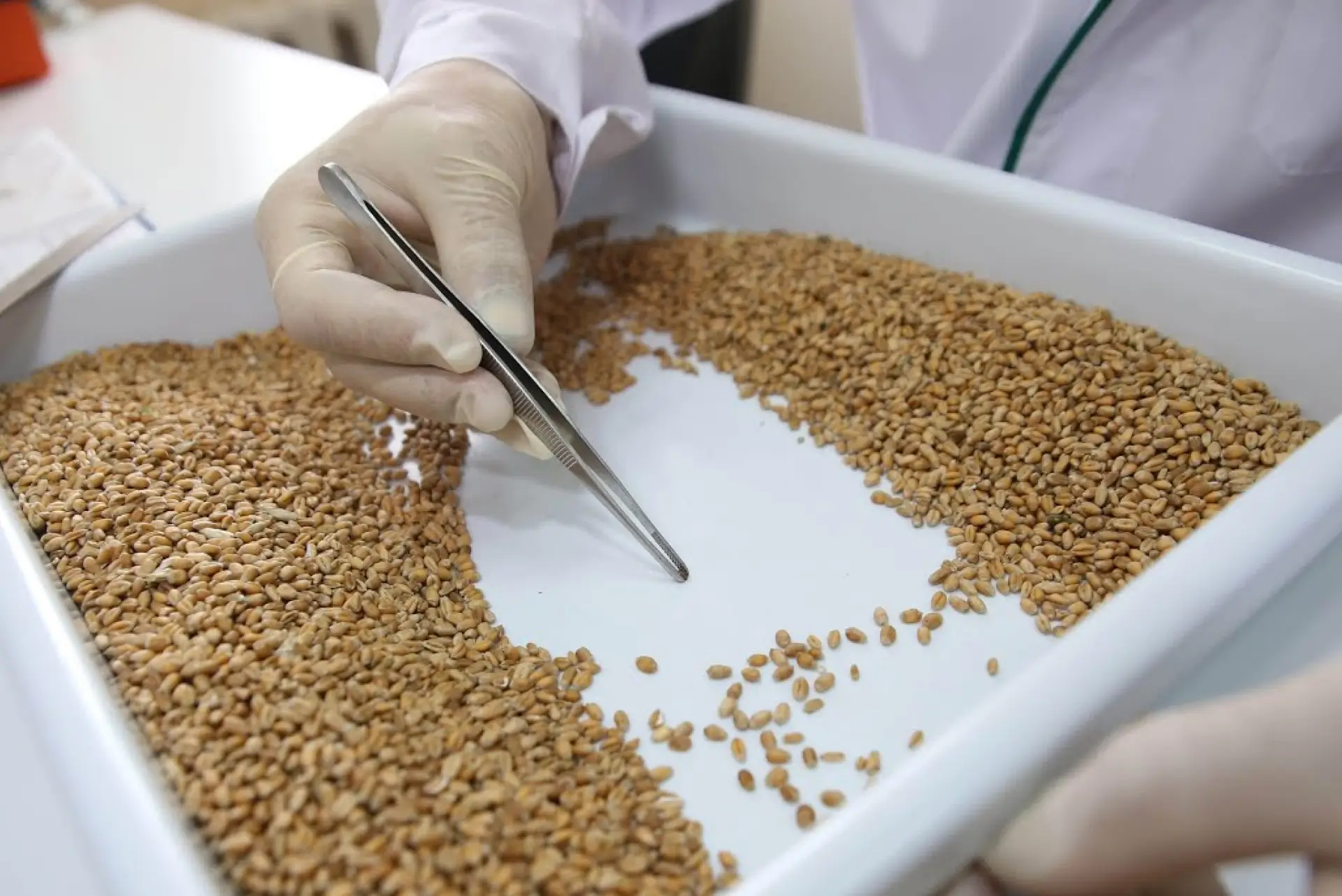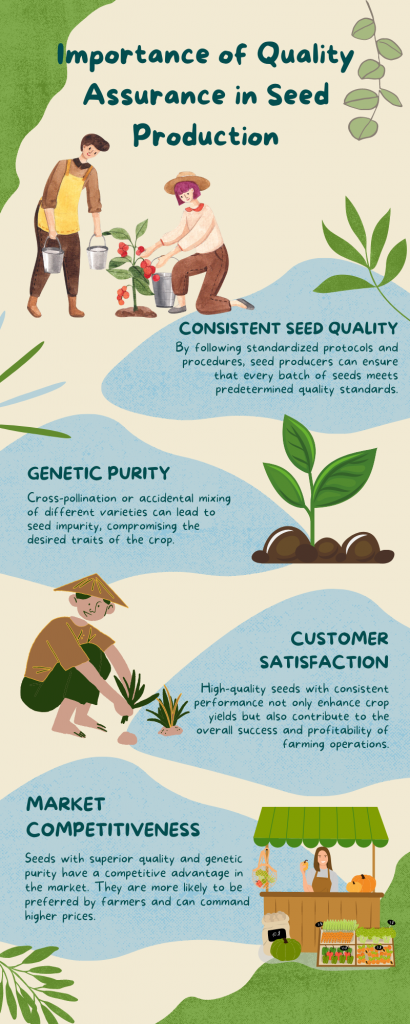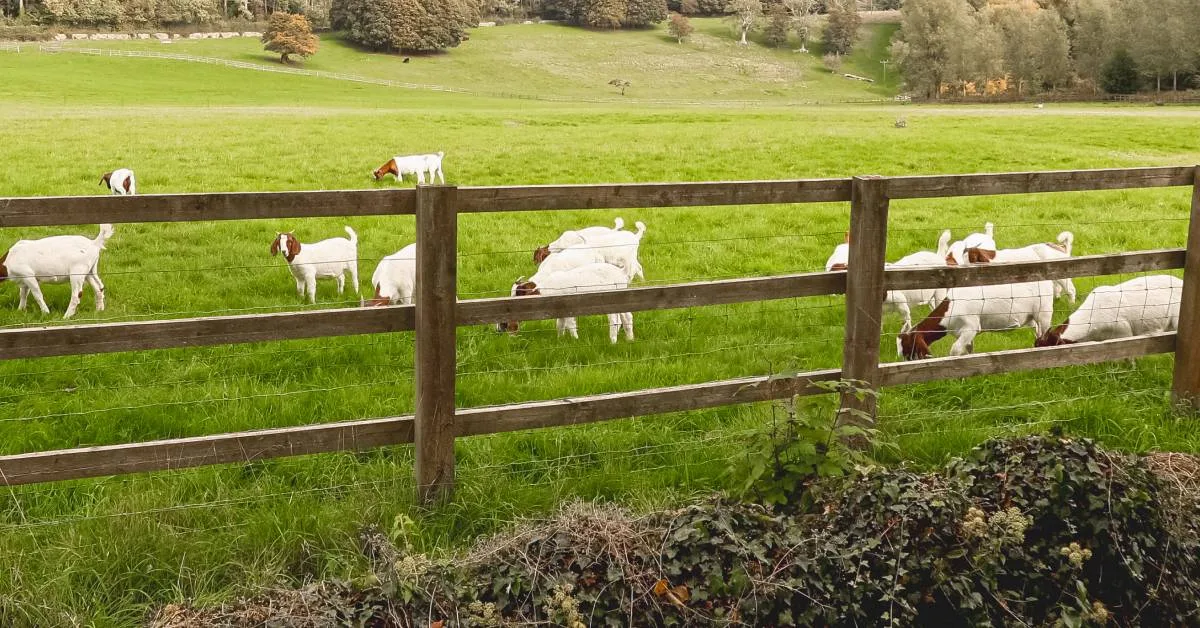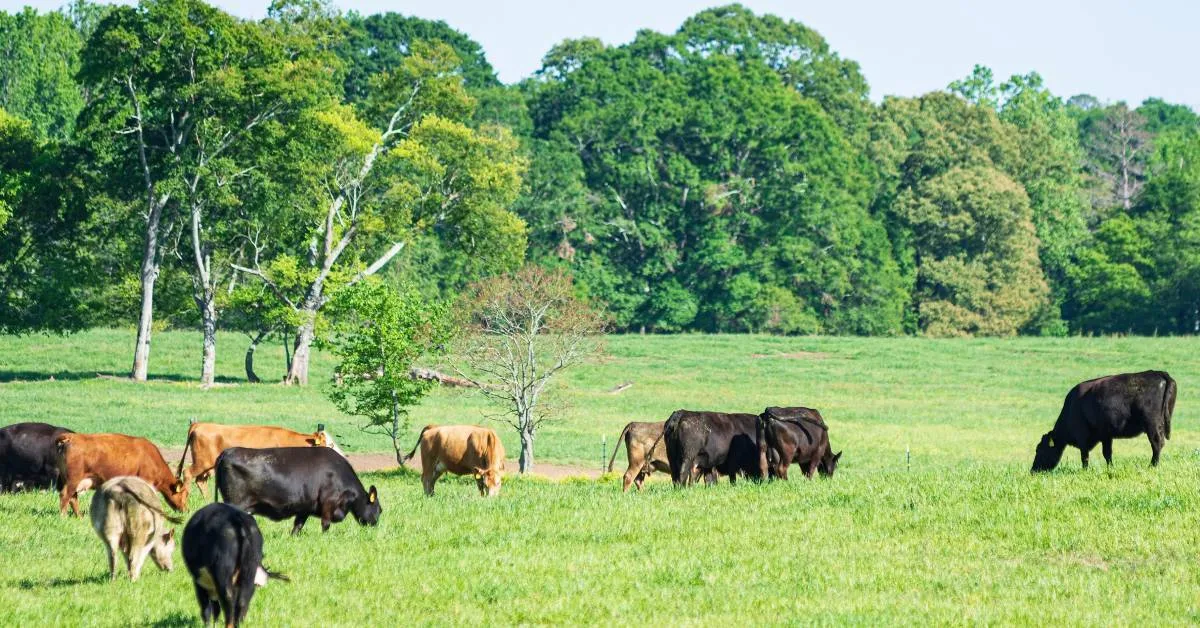Introduction
Seed production is a critical process that requires meticulous attention to detail and adherence to quality assurance protocols. With the aim of ensuring seed quality, genetic purity, and market competitiveness, seed producers employ various techniques and practices.
In this comprehensive guide, we will explore the best practices for quality assurance in seed production, including seed quality control, seed production techniques, quality assurance protocols, seed purity in production, and seed storage best practices.
By understanding and implementing these strategies, seed producers can optimize their production processes and deliver high-quality seeds to meet the demands of the industry. Let’s delve into the world of seed production and discover the key strategies for quality assurance.
Understanding Seed Production
Seed production involves several stages, including seed breeding and selection, seed harvesting and processing, and storage. Each stage plays a vital role in ensuring the integrity and quality of seeds.
- Seed breeding and selection:
The process for breeding and selection of seeds involve carefully choosing parent plants with desired traits and using controlled cross-pollination techniques to maintain genetic purity. - Seed harvesting and processing:
Harvesting is the process of collecting seeds from mature plants at the optimal stage to ensure high-quality seeds for further use or storage.
Processing includes cleaning the seeds to remove impurities and using drying techniques to reduce moisture content, ensuring the seeds’ quality and preventing issues like mould or germination problems.
- Seed storage:
Seed storage involves storing seeds under controlled conditions, such as maintaining suitable temperature and humidity levels, to preserve their viability and maintain their quality over time.
Regular sampling and monitoring are conducted to assess seed quality and prevent deterioration.
By understanding these stages in seed production and implementing best practices, including quality assurance protocols, seed producers can ensure the production of high-quality seeds with genetic purity, maintaining their integrity and enhancing market competitiveness.
Importance of Quality Assurance in Seed Production
Quality assurance plays a critical role in seed production, ensuring the overall success and reliability of the seed industry. Here are the key reasons why quality assurance is crucial for seed production:
- Consistent Seed Quality
Quality assurance practices in seed production are essential to maintain consistent seed quality. By following standardized protocols and procedures, seed producers can ensure that every batch of seeds meets predetermined quality standards.
This consistency is vital for farmers and growers who rely on high-quality seeds to achieve optimal crop yields and performance.
- Genetic Purity
Maintaining genetic purity is another fundamental aspect of quality assurance in seed production. Cross-pollination or accidental mixing of different varieties can lead to seed impurity, compromising the desired traits of the crop.
Quality assurance protocols, such as isolation distances, proper field management, and controlled pollination techniques, help prevent genetic biological contamination and ensure the genetic integrity of the seeds.
- Customer Satisfaction
Quality assurance is directly linked to customer satisfaction. When farmers purchase seeds, they expect reliability, performance, and consistency.
By implementing quality assurance measures, seed producers can meet these expectations and build trust with their customers.
High-quality seeds with consistent performance not only enhance crop yields but also contribute to the overall success and profitability of farming operations.
- Market Competitiveness
In the competitive seed industry, quality assurance is a key factor that sets successful seed producers apart. Seeds with superior quality and genetic purity have a competitive advantage in the market.
They are more likely to be preferred by farmers and can command higher prices. Quality assurance allows seed producers to differentiate their products, establish a reputable brand, and capture a larger market share.
Best Practices for Seed Production Quality Assurance
To ensure high-quality seeds and maintain the integrity of the seed production process, several best practices should be followed. Here are key areas of focus for quality assurance in seed production:
- Field Selection:
Careful field selection is crucial for seed production. It involves choosing suitable land with optimal soil conditions, adequate drainage, and minimal weed pressure. Selecting fields that are free from contaminants and pollutants is essential to prevent seed contamination and ensure the purity of the final product.
- Isolation Distances:
Maintaining appropriate isolation distances between different seed varieties is essential to prevent unintended cross-pollination. This practice ensures that the desired genetic traits of each variety, including seed purity in production, are preserved. The specific isolation distances vary depending on the crop species and its pollination characteristics.
- Pollination Control:
Controlling pollination is vital in seed production, especially for crops that rely on specific pollinators or require controlled cross-pollination. Techniques such as bagging, caging, or hand pollination can be employed to ensure accurate and controlled pollination. This practice helps maintain genetic purity and prevents unintended hybridization.
- Pest and Disease Management:
Effective pest and disease management is crucial to minimize the impact of pests and diseases on seed production. Integrated pest management software and practices, including cultural, biological, and chemical control methods, should be implemented. Regular scouting, timely identification of pests and diseases, and appropriate control measures help safeguard seed quality and prevent yield losses.
- Harvest and Drying Techniques:
Proper harvesting and drying techniques are essential for preserving seed quality and viability. Harvesting should be done at the right stage of seed maturity to ensure optimal seed development.Careful handling and timely drying under controlled conditions help prevent seed damage, minimize moisture content, and inhibit the growth of mould and pathogens. These seed production techniques contribute to seed storage best practices.
- Storage Conditions:
Seeds should be stored under optimal conditions to maintain their quality and viability. Proper storage facilities with controlled temperature, humidity, and ventilation are necessary to prevent deterioration.Adequate packaging, labeling, and rotation practices should be followed to ensure seed longevity and prevent quality degradation over time. Implementing these quality assurance protocols in seed storage ensures the preservation of seed integrity and seed quality control.
By implementing these best practices in seed production, including the use of advanced seed management software, seed producers can enhance quality assurance, promote genetic purity, and ensure the production of high-quality seeds. These practices contribute to the seed industry’s success and reliability, ultimately benefiting farmers and supporting sustainable agriculture.
Role of an Audit and Inspection Software in Seed Production
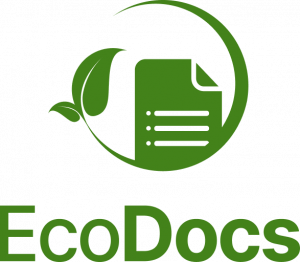
EcoDocs is an audit and inspection software solution designed to facilitate quality assurance protocols in seed production. It offers a range of features that enhance efficiency, accuracy, and compliance.
With EcoDocs, seed producers can create customized checklists to ensure thorough inspections and audits. The software enables automated data collection, reducing errors associated with manual entry and providing real-time tracking and analysis of quality assurance data.
EcoDocs also provides comprehensive reporting capabilities, offering insights into overall performance and compliance. Moreover, the software incorporates traceability features, allowing seed producers to track and monitor the seed lifecycle from origin to storage.
Overall, EcoDocs streamlines quality assurance processes, improves data management, and ensures the integrity of seed production operations.
Ensuring Genetic Purity in Seed Production
Maintaining genetic purity is crucial in seed production to preserve the desired characteristics of the seeds. Various techniques, including roguing, isolation, and preventing cross-pollination, are employed for this purpose.
Roguing involves the removal of off-type or undesirable plants from the seed crop, ensuring that only genetically pure plants contribute to the seed production process.
Isolation practices physically separate different seed varieties to prevent unintended cross-pollination and preserve the genetic integrity of each variety.
Along with these techniques, software solutions like EcoDocs play a significant role in monitoring and documenting practices that ensure genetic purity. EcoDocs facilitates the tracking and recording of roguing, isolation, and cross-pollination prevention measures.
The software features checklist creation, automated data collection, and reporting capabilities, enabling seed producers to efficiently document their observations, actions, and outcomes during the production process.
By utilizing EcoDocs, seed producers can ensure compliance with quality standards, maintain genetic purity, and enhance traceability in their seed production operations.
Pest and Disease Management in Seed Production
Effective pest and disease management is essential in seed production to safeguard the quality and viability of seeds. Implementing best practices in this area ensures healthier crops and minimizes the risk of seed-borne diseases.
Integrated pest management (IPM) strategies, which prioritize preventive measures and biological controls, are highly recommended.
This approach involves monitoring pests, using disease-resistant seed varieties, and employing cultural practices to create an unfavorable environment for pests and diseases.
Moreover, proper use of pesticides plays a crucial role in pest and disease management. It is important to follow recommended application rates and timing, ensuring minimal impact on the environment and non-target organisms.
Seed producers should adhere to regulatory guidelines and safety protocols when handling and applying pesticides to maintain seed quality and protect the ecosystem.
Audit and inspection software, such as EcoDocs, can greatly assist in tracking and managing pest and disease-related data. The software enables seed producers to record pest and disease observations, track treatment measures, and monitor the effectiveness of control strategies.
By centralizing and organizing this data, EcoDocs enhances the ability to analyze trends, make informed decisions, and implement proactive measures for pest and disease management.
With EcoDocs, seed producers can improve their overall pest and disease control practices, mitigate risks, and maintain the integrity of their seed production processes.
Harvesting, Drying, and Storage Techniques
Maintaining seed quality requires implementing proper harvesting, drying, and storage techniques. Timely harvesting ensures the collection of mature seeds at their peak quality.
Efficient drying methods, such as controlled temperature and airflow, help reduce moisture content and prevent mold or fungal growth. Optimal storage conditions, including temperature, humidity, and pest control, play a crucial role in preserving seed viability over an extended period.
To facilitate these processes, audit and inspection software solutions like EcoDocs provide valuable assistance. With EcoDocs, seed producers can monitor and document each step, ensuring compliance with quality assurance protocols.
The software’s features, including checklist creation, automated data collection, and reporting capabilities, enhance efficiency and accuracy in managing harvesting, drying, and storage operations.
Additionally, EcoDocs offers seed traceability systems, enabling easy tracking of seed batches and ensuring transparency throughout the production chain.
Quality Control and Testing in Seed Production
Ensuring high-quality seeds involves implementing rigorous quality control measures throughout the production process. Seed producers employ various testing methods to evaluate physical purity, germination rates, and genetic identity.
Physical purity testing assesses the presence of other crop species, weed seeds, or inert matter in seed lots. Germination testing determines the percentage of viable seeds capable of developing into healthy plants. Genetic identity testing verifies the authenticity and purity of the seed variety through DNA analysis.
To streamline and enhance quality control processes, software solutions like EcoDocs offer valuable support. EcoDocs enables seed producers to organize and analyze seed quality testing data effectively.
The software’s features facilitate the creation of customized checklists for different testing procedures. It automates data collection, reducing manual errors and improving efficiency. EcoDocs also provides robust reporting capabilities, allowing easy generation of quality control reports for internal analysis or external compliance purposes.
By utilizing EcoDocs, seed producers can efficiently manage and document seed quality testing data, ensuring adherence to strict quality standards.
Compliance with Regulatory Standards
Ensuring compliance with regulatory standards is vital in seed production to meet industry requirements and maintain seed quality. It involves adhering to regulations that govern various aspects of seed production, including seed quality, genetic purity, labelling, documentation, and traceability.
Audit and inspection software, such as EcoDocs, plays a crucial role in supporting compliance efforts. It simplifies regulatory processes by providing a centralized platform for efficient document management and record-keeping.
EcoDocs enables seed producers to maintain accurate and up-to-date records throughout the seed production process.
It facilitates streamlined data collection, storage, and retrieval, ensuring the availability of essential information such as production records, test results, and seed certification requirements documents.
By leveraging audit and inspection software like EcoDocs, seed producers can effectively manage compliance efforts, maintain accurate records, and confidently meet regulatory standards.
Conclusion
In conclusion, quality assurance is of paramount importance in seed production to ensure consistent seed quality, maintain genetic purity, and meet regulatory standards.
By implementing best practices such as careful field selection, isolation distances, and effective pest and disease management, seed producers can safeguard seed integrity. Proper harvesting, drying, and storage techniques are also crucial for maintaining seed viability.
Moreover, audit and inspection software solutions like EcoDocs streamline quality assurance processes, facilitating accurate documentation, data management, and compliance.
With EcoDocs, seed producers can confidently navigate the complexities of seed production, ensuring high-quality seeds that adhere to industry standards and regulatory requirements.
FAQs:
Q1: Why is quality assurance important in seed production?
Quality assurance ensures consistent seed quality, genetic purity, and market competitiveness. It maintains desired traits, enhances customer satisfaction, and supports optimal crop yields.
Q2: How does EcoDocs aid in quality assurance in seed production?
EcoDocs is an audit software streamlining quality assurance. It offers checklists, automated data collection, and reporting. Traceability features track the seed lifecycle, improving efficiency and integrity.
Q3: What are some common challenges in seed production quality control?
Challenges include maintaining seed quality, preventing contamination, and meeting seed certification requirements. Strategies involve careful field selection, isolation distances, controlled pollination, pest management, and proper harvesting and storage techniques. Audit software like EcoDocs assists in managing quality control processes.

